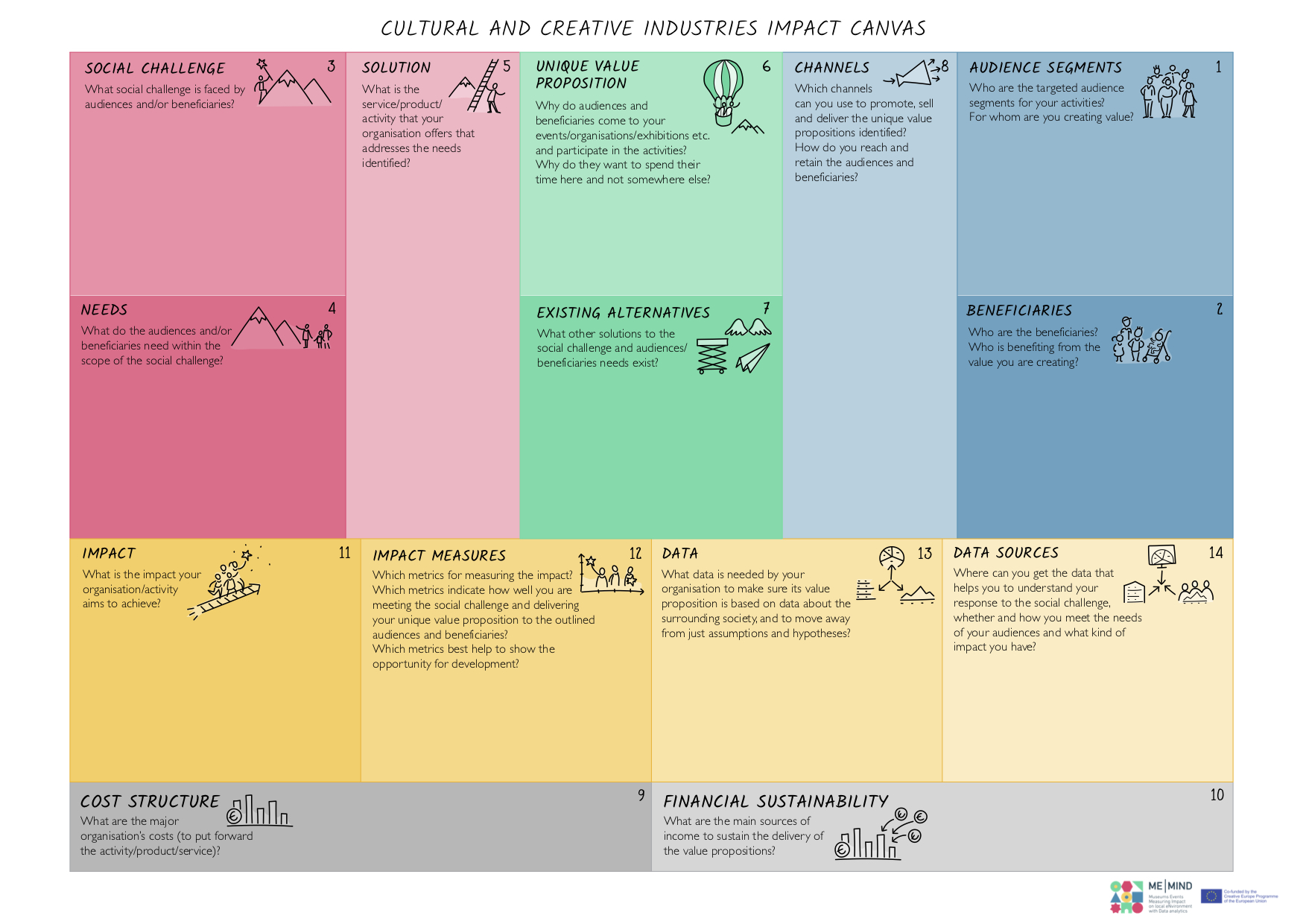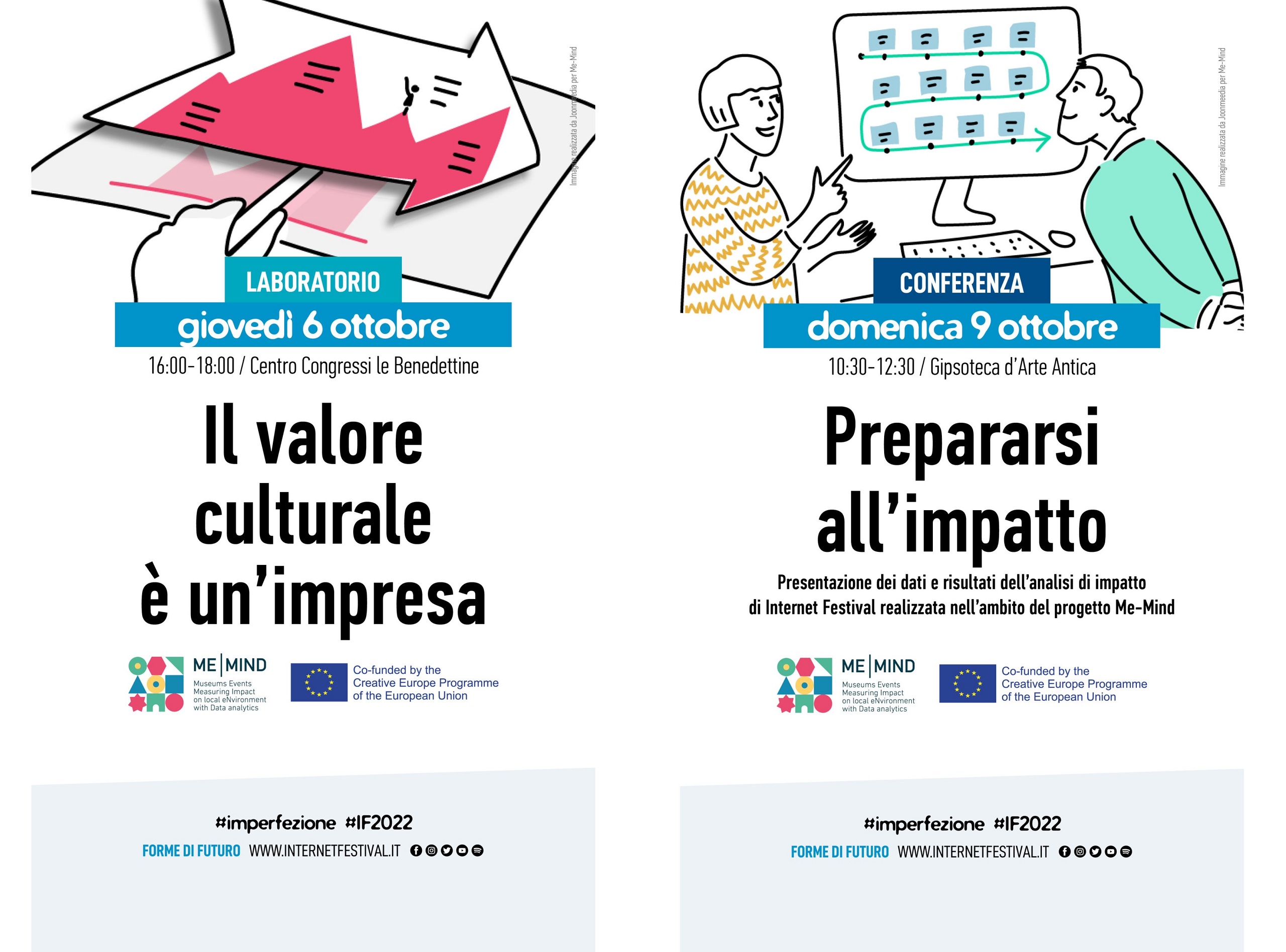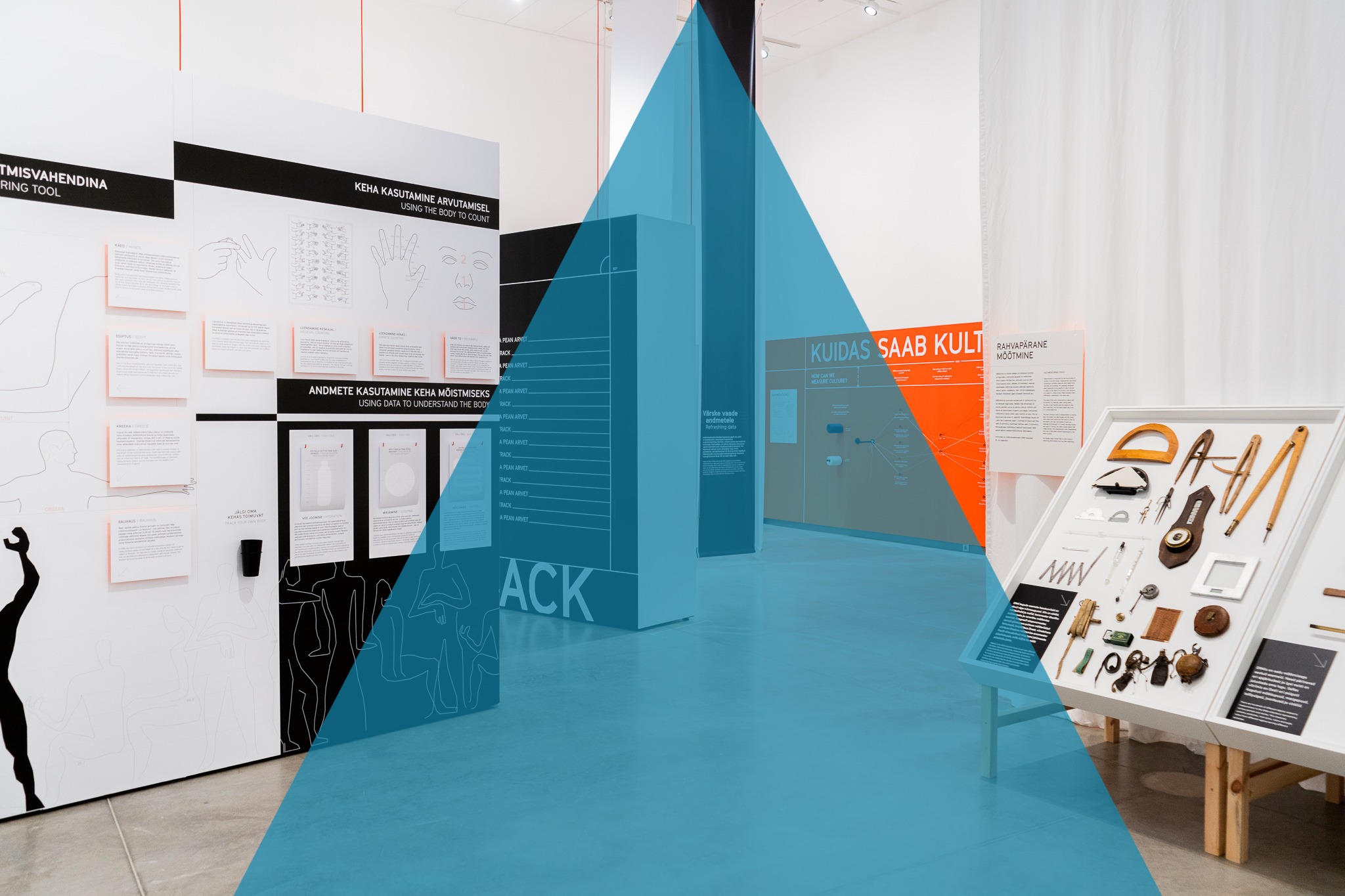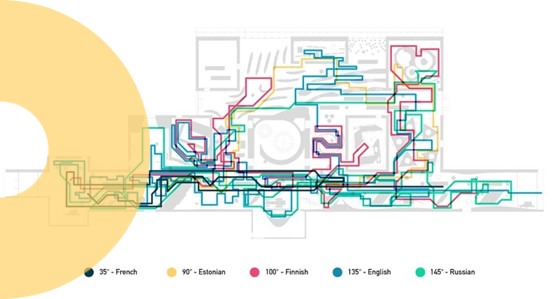By now you should know us and realised that – to paraphrase Tolstoy – all the healthy cultural organisations produce good data, but not all good data are collected in the right way. Or rather, not all good data emerge in the same way because what matters is the level of aggregation. Yes, we said aggregation even if there is still some pandeming around us.
Remember the concept of granularity? If you have forgotten something…please see here! A reshuffle is always useful! And if you do not know us you’ll be interested in reading our data approach and our demonstration activities.
Beyond data collection, what the Internet Festival experienced on its own skin was also a series of difficulties in the phase of analysing its impact on its territory: things do not always go as well as you would like. Aye!
In this case, we thought of food (and its infinite metaphors) both because we always are compelled by a mere biological question of survival (oh yes, the hunger..) and because food helps everyone understand the composition of data, its nature and size, how it is distributed and how it is managed by those who produce or collect it.
So, we conceived 6 key concepts extrapolated from the data collection and the problems and difficulties emerged during the analysis of the impact as well as the benefits of the Internet Festival.
The result is certainly not an omelette, but a very varied data menu and interesting problems to be solved for the future. Here you are served.
A piece of nougat
The data were aggregated with a granularity that was not functional for the analysis of a cultural event, such as the Internet Festival, which takes place four days a year. In this case the data on the number of tourists in Pisa were aggregated on a yearly basis and did not help us to see whether or not there was an increase in the number of tourists in Pisa compared to the seasonal average.Culinary metaphor: in this food the ingredients are firmly aggregated and do not break down.
A rose tea
The data had a daily granularity and a richness of detail that well serves the purposes for which these data were generated, but they were unresponsive to the needs of analysing the impact of an event like the festival, and the information they give us is partial, deductive and in need of other data to support it.Culinary metaphor: a drink with little flavour.
A bottle of red wine
The data were there but to analyse them specific skills were needed because they were data collected through data scraping actions on social networks (a specific and dedicated tool is needed). Therefore, to be able to use them, a cultural organisation such as the festival needs external expertise. A good example could be collecting reviews of restaurants in the city through TripAdvisor.Culinary metaphor: opening a bottle of wine that can only be done with an appropriate tool i.e. the corkscrew…
Valuable drop of wine
Data were difficult to collect because they were generated and stored independently by individual organisations, they were valuable for a cultural event such as the Internet Festival. For example the data on the number of tickets snatched in museums in the city of Pisa during the Internet Festival. The fact that the data were collected in individual datasets makes its retrieval more laborious and ‘wasteful’.Culinary metaphor: it takes little to get great results.
No food
The data was mine and I don’t share it because I don’t know how it can be reused and I don’t see a benefit for my business. Not secondary is the problem of privacy. This point was very sensitive and was represented by the quantitative data of the number of guests in the accommodation facilities in the city of Pisa. Hotels have rather sophisticated management systems with which they record entries and exits on a daily basis (also by type of guest) in their facilities. Having this kind of data from a range of different structures by category can help the festival understand whether its activities generate an economic return on the local economic fabric.Culinary metaphor: not available till now.
A fruit salad with a tiny spoon
Qualitative data, those collected from the public with questionnaires and interviews, were very important because they told us something about the public and the eventual benefit generated. However, these data were difficult to collect because they required expertise, budgets and ad hoc activities. For example qualitative data collected from the public with the realisation of the installation.Culinary metaphor: something rich, varied and beautiful, but difficult to bring to the mouth without smearing.






